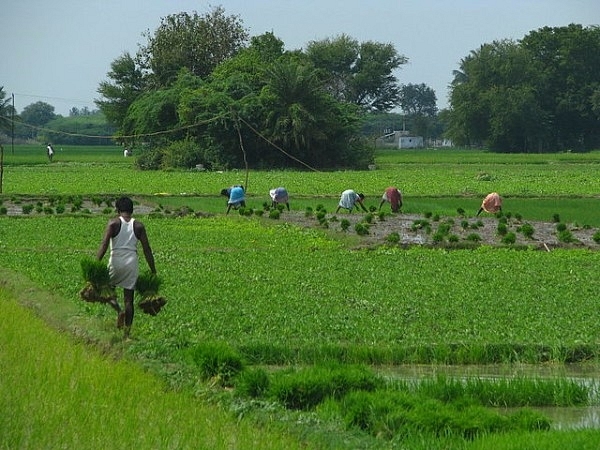
Doubling Farm Income: Agripreneurs In Pudukkottai Show How It’s Done
The Union government has been introducing new policies to achieve its ambitious target of doubling farm incomes by 2022.
In a cluster of villages in Pudukkottai, Tamil Nadu, farmers have already been able to achieve it, thanks to the efforts of Swaminathan and team.
This comes as a ray of hope for achieving this mighty target by 2022.
The Union government has been introducing new policies in its stated attempt to double farm incomes across India by 2022. Earlier this year Prime Minister Narendra Modi himself announced a seven-point strategy to accomplish this goal. The strategy included ‘more crop per drop’ programmes (modern irrigation techniques), provision of quality inputs such as seeds and better farm markets and crop insurance. When properly implemented, the government believes that these measures can help make the farmer more productive, especially with the help of scientific tools, measured inputs and market access.
As if on cue, a cluster of five villages in one of Tamil Nadu’s driest regions, Pudukkottai, has demonstrated that doubling farm incomes need not be a distant goal. If reports are to be believed, they have already got there. Farmers in these villages have been able to harvest 745 kg of pulses per hectare. While this productivity figure is slightly lesser than the national average, it is still impressive considering that this region is among the driest, experiencing near-drought-like conditions most of the year.
These impressive harvests were achieved, thanks to the efforts of well-known agri-scientist MS Swaminathan and his team. Farmers across the five villages were gathered and trained in the modern practices of ‘seed selection, use of technology and implements and application of bio-fertilizers and enriched manure’.
There also exists a corporate vehicle to make sure the produce from these villages is marketed and sold. The Illuppur Agriculture Producer Company Limited (IAPCL) is run by a chief executive officer who acts on decisions made by farmers. The Hindustan Times report cites the example of one R Subbaiah, who has managed an impressive harvest of 482 kg of black gram per acre. His returns? He claims it has doubled.